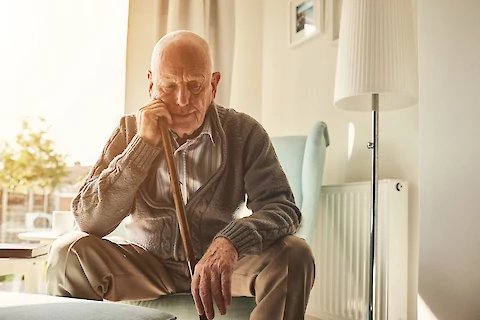
Depression is a complex condition that does not discriminate. It impacts people of all ages, including our senior population. However, depression in seniors is often misunderstood, undiagnosed, or inadequately treated.
Our goal today is to shed light on the often overlooked symptoms of depression in seniors, dispel prevalent myths, and offer valuable guidance for those caring for elderly loved ones. With knowledge and vigilance, we can ensure our seniors are not silently suffering but instead, living their golden years with the happiness and dignity they deserve.
Understanding Depression in Seniors
Depression is far more than mere sadness. It's a serious mental health disorder characterized by persistent feelings of unhappiness, a lack of interest in activities, and difficulties in managing day-to-day tasks.
As seniors age, the signs of depression can differ and may often present as signs of normal aging or conditions like dementia. Therefore, dispelling the myth that depression is a normal part of aging is crucial. Seniors can enjoy emotional vitality; any noticeable changes should never be dismissed or ignored.
Recognizing Signs of Depression in Seniors
This can be challenging because their symptoms often differ from those seen in younger individuals. Signs of depression in seniors can include increased use of alcohol or other substances, a loss of interest in once-loved hobbies, or decreased socialization with friends or family. They may also experience pain or other physical complaints that don't seem to relate to any medical condition.
Subtle signs, such as neglecting personal care or a change in sleeping patterns, can also indicate depression. As caregivers, it's essential to stay alert to these potential red flags. Ensure you maintain open communication as well as pay attention to any changes in behavior or mood.
How to Seek Professional Help
Talk to your loved one about your concerns and encourage them to speak with their primary care physician. Their doctor can conduct a comprehensive assessment that may include medical history, physical examination, and possible laboratory tests. This information will help determine the appropriate treatment, which might include psychotherapy (talk therapy), medication, or a combination of both.
Next, reach out to local mental health resources, like support groups catering to those with depression and their families. It's important to support your loved one throughout their treatment process, providing a stable, positive environment and encouraging adherence to any recommended treatments.
Many seniors, based on cultural or religious beliefs, may be resistant to the idea of getting help. Keep this in mind when encouraging them to seek the mental health care they deserve.
You Have Our Support at Senior Helpers
Depression doesn't have to be an inevitable part of aging. Recognizing the symptoms early can make a substantial difference in the lives of your loved ones. With understanding, vigilance, and the right support, seniors can manage depression and live a fulfilling life.
If the senior in your life lives in Huntsville, Madison, Meridianville, Hazel Green, Harvest, or surrounding areas, contact us at Senior Helpers Huntsville. Our team is ready to assist you and your family in navigating this difficult journey, providing professional in-home help and compassionate care every step of the way.